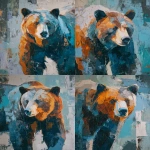Explore the Best AI Image Gallery

Pixel Perfect: How AI is Transforming Product Photography
The world of e-commerce relies heavily on captivating product photography to entice customers and drive sales. Traditionally, this involved elaborate setups, skilled photographers, and time-consuming post-production processes. However, the emergence of artificial intelligence (AI) is ushering in a new era, transforming the way products are presented online.
The Rise of AI in Product Photography
AI algorithms are now capable of automating various aspects of product photography, from image generation to retouching. This has opened up a plethora of opportunities for businesses and creatives alike:
Potential Uses of AI in Product Photography
- Automated Image Generation: AI can create realistic product images from 3D models or textual descriptions, eliminating the need for physical shoots.
- Style Transfer: AI algorithms can apply different artistic styles to existing product photos, adding a unique touch and enhancing visual appeal.
- Image Retouching: AI-powered tools can automatically remove blemishes, enhance colors, and adjust lighting, streamlining post-production workflows.
- Background Removal: AI can seamlessly isolate products from their backgrounds, creating clean and professional images for various applications.
- Product Variation Imaging: AI can generate multiple product variations (color, size, etc.) from a single photoshoot, saving time and resources.
Impact on the Creative Industry
The integration of AI in product photography is reshaping the creative landscape:
Opportunities for Creatives:
- Focus on Conceptualization and Storytelling: With AI handling technical aspects, creatives can concentrate on developing innovative concepts and narratives.
- Exploration of New Artistic Styles: AI tools allow for experimentation with diverse artistic styles, pushing creative boundaries.
- Collaboration with AI: Creatives can leverage AI as a powerful tool to enhance their workflow and bring their visions to life.
Challenges for Creatives:
- Job Displacement Concerns: Some creative roles may be automated, requiring professionals to adapt and acquire new skills.
- Maintaining Artistic Control: Striking a balance between AI assistance and human creativity is crucial.
- Ethical Considerations Regarding AI-Generated Content: Questions surrounding authorship, originality, and the potential for misuse need to be addressed.
Ethical Considerations
The use of AI in product photography raises several ethical considerations:
Transparency and Authenticity:
Its important to clearly disclose when AI has been used in image creation to maintain transparency with consumers.
Bias in AI Algorithms:
AI algorithms can perpetuate existing biases, leading to unfair or discriminatory representations. Its crucial to develop and utilize AI models that are fair and inclusive.
Copyright and Ownership:
Questions surrounding copyright ownership of AI-generated content need to be addressed through legal frameworks and ethical guidelines.
Future Trends
The field of AI in product photography is constantly evolving. Here are some future trends to watch:
Enhanced Personalization:
AI can generate personalized product images tailored to individual customer preferences, creating a more engaging shopping experience.
Virtual and Augmented Reality Integration:
AI-powered VR/AR experiences will allow customers to virtually try on products or interact with 3D models, enhancing product visualization.
Sustainable Practices:
AI can contribute to more sustainable photography practices by reducing the need for physical shoots and minimizing resource consumption.
Conclusion
AI is transforming product photography, offering a range of innovative solutions while raising important ethical considerations. By embracing responsible AI development and fostering collaboration between humans and machines, we can unlock the full potential of this technology to enhance creativity, efficiency, and customer experiences in the e-commerce landscape.
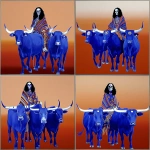





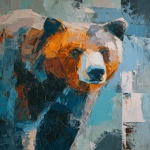
](https://images.ai-img.art/thumbnails/150/49b2045656114485ebab918ddb6e08f966bcfa29c558162f03aa9cfb3b4db753.webp)







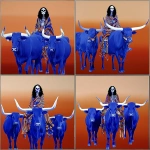


](https://images.ai-img.art/thumbnails/150/00b290d796713140a96e0c6ea47c6b48fce685ce0f6e88d13aeff0efddff3ef6.webp)






](https://images.ai-img.art/thumbnails/150/f5e636d5279cb83e912f9a07dfb31df83d56c73c2ff738d2e2b2291c46d75099.webp)
](https://images.ai-img.art/thumbnails/150/99bc047573dec087a846aea7d8f25f25730d536ef310ffb53d5c5f6cefe1bfac.webp)

](https://images.ai-img.art/thumbnails/150/3f66200b1a7d200e2d5ec57b1ba9396c53f6a5adf00b12228e92ef33a127a643.webp)
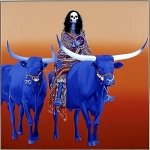
](https://images.ai-img.art/thumbnails/150/da1b96f086142e5b963b45e87850f2e54052e64b2547b953d6e672f857c70983.webp)


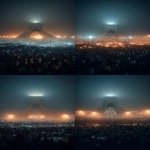




](https://images.ai-img.art/thumbnails/150/bf53be60bd2c95796a62f14ffd83fb6e77f5bacfc837720b1a939a80512ff33a.webp)




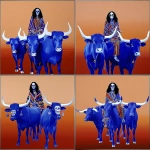



](https://images.ai-img.art/thumbnails/150/d4f221f590fe8f7bc904116c913ac3c968fc54e2f7d16be1ed4e4eee38106398.webp)

